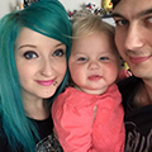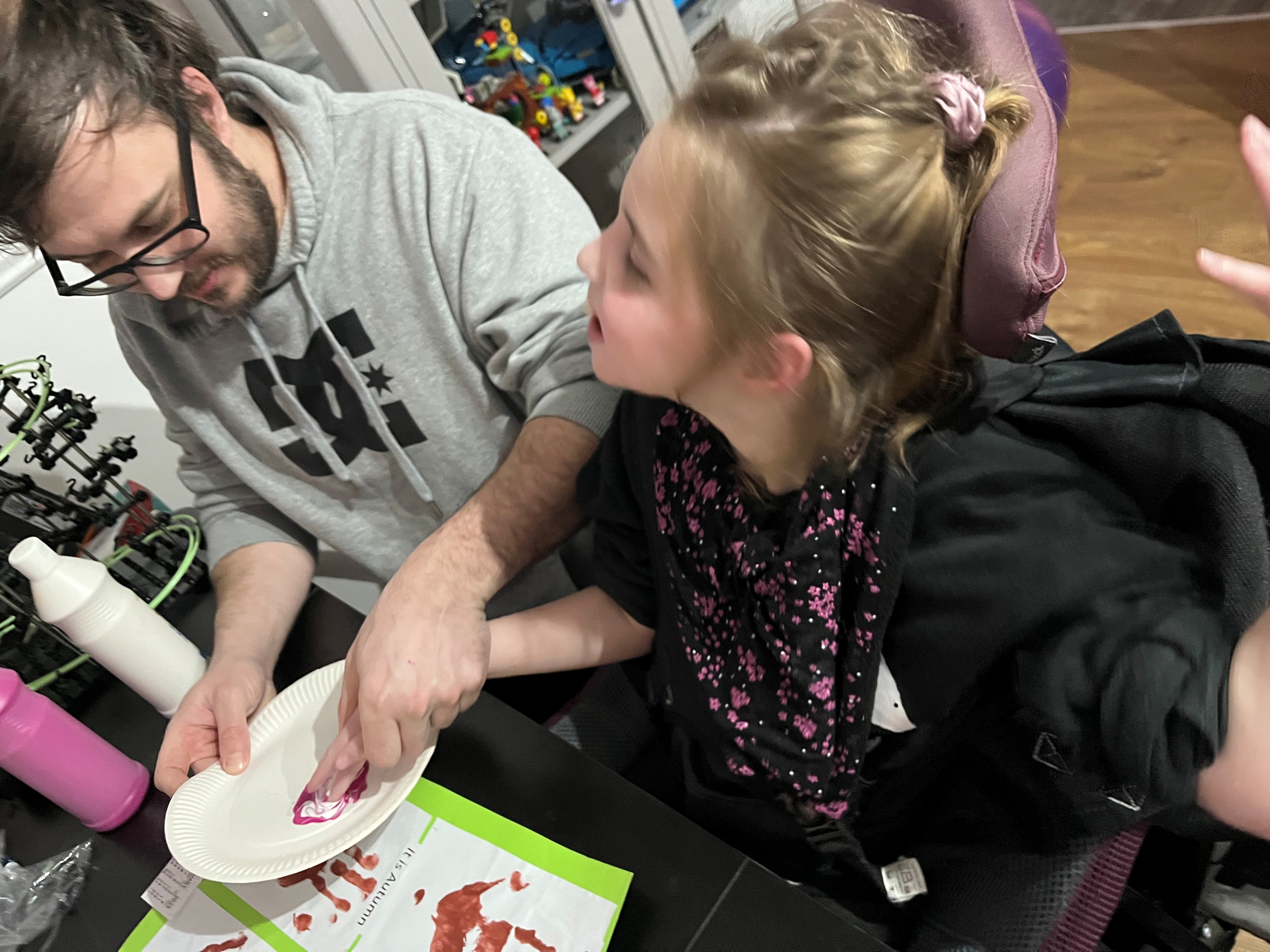Children’s Mental Health Awareness Week

Ceri-Ann Brown
My name is Ceri-Ann Brown and I live in Stockport, Manchester. I live with the love of my life Phil, my amazing daughter (Amy-Rose) and my giant guine...

Typically, as a parent all you want for your child is to be as happy and pain free as possible. Most of us live to see the smiles on our children’s faces and want to eliminate all that is bad from their worlds.
When your child has multiple diagnoses, naturally you’re going to be more anxious. Parents of children with disabilities will often have a diagnosis of anxiety/depression/PTSD and probably try their best to shield their child from this and put on a brave face.
It’s a scientifically proven fact that people with lifelong chronic conditions are at a much higher risk of also having a mental health condition. I recall reading once that almost 75% of people with severe disabilities will suffer with depression and/or another form of mental health disorder.
A few years ago, the professionals in Amy’s life expressed some concern regarding her mental health. At the time she was having a lot of mood swings and heavily emotional outbursts.
It’s distressing to see, especially when she becomes violent with herself and others.
We consulted her paediatrician who informed us that it’s a very difficult issue to tackle because non-verbal patients (that aren’t yet able to use a communication aid) wouldn't be able to access talking therapy. We were offered a place on the CAHMS waiting list but were told really without counselling being an option it would only be yet more medication.
If anything we are looking to reduce meds not add more. I know from personal experience just how debilitating anxiety medication side effects can be until you’re on the right one. How could she tell us? How would it interact with her other meds? Do we need to take a more holistic approach?
In recent years, I’ve gained more experience as Amy’s mum, and seen just how fragile and terrifying life can be. We’ve had some close calls and truly anxiety inducing encounters. This has shifted my focus heavily onto spending great quality time together and de-medicalising our lives as much as possible.
I have become much stricter about appointments - is it definitely necessary? Can it be done on the phone whilst she’s at school? Are these tests and procedures worth the pain and stress? It’s a constant balancing act.
Yes Amy’s diagnoses will always be there. They will always impact her on a daily basis; but now I feel much more informed and empowered to navigate the medical side of things. Her life is unavoidably very medical, there’s no escaping it. However, my hope is that this change of approach will have a positive effect on Amy’s mental health. (And catching less bugs being in waiting rooms!).
What can we do to support our children’s mental health? For me, it’s asking the questions even if I won’t get an answer. Allow time to listen, watch facial expressions and movements. Decipher any little motion and try to have a conversation and most importantly, LISTEN.
We try to engage in as many outdoor activities as possible and get out into nature.
We sing constantly and play with all of her favourite toys and making sure she’s the one guiding play and making choices. We see family and friends as much as we can.
And lastly, respite. I hate her going as I feel guilty for needing a break, but I also know that gives her some independence from us (I mean what child wants to spend all that time with their parents!) and time with friends. It brings me so much joy to see photos of her at school loving hydrotherapy, or laughing with friends whilst bowling. It’s the reassurance I need to know she can smile without us there.
Inevitably, I’ll be making mistakes and there’s probably a myriad of things I can do better. I agonise daily about the choices I make and if there’s more we can do to support her mental health.
I hope at the end of each day as she settles off to sleep, that she feels happy, confident, important and loved. I hope she sees herself as I see her - a person with a beautiful heart and mind, amazing sense of humour, and the strongest and coolest person I know.
My main goal is to make her proud and ensure she has the best life possible, in spite of some of the difficult cards she has been dealt. I hope she knows her voice counts and how much she matters. In fact, I wish that for everyone. Life is hard and I wish nothing but the best for all of us.
I am glad Children’s mental health awareness week exists because it has given me an opportunity to reflect on how far we have come and think about such an important topic.


